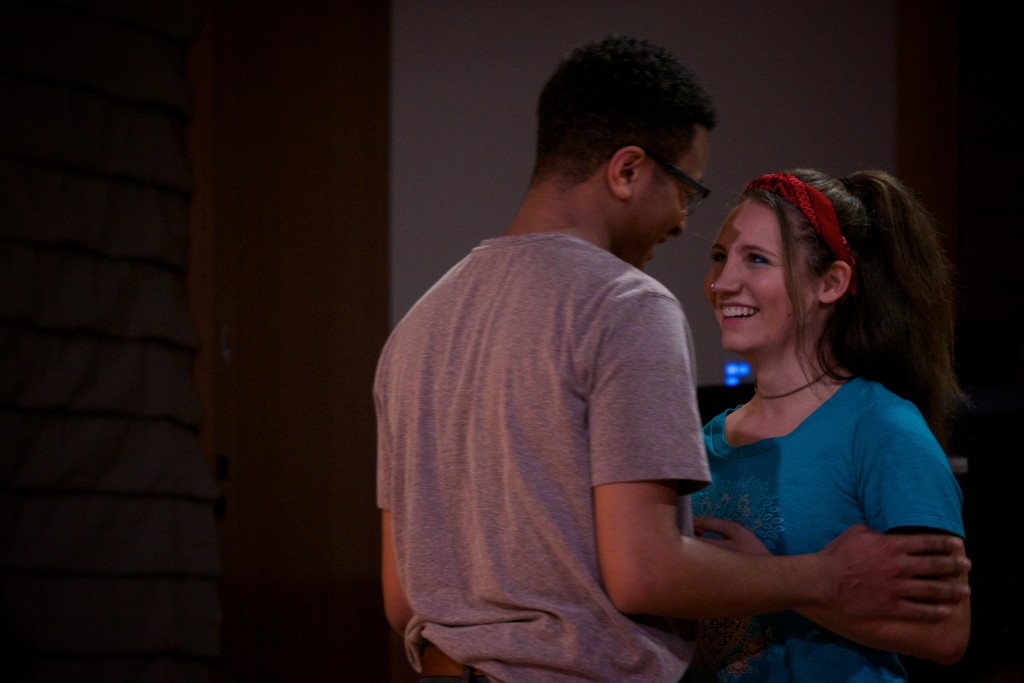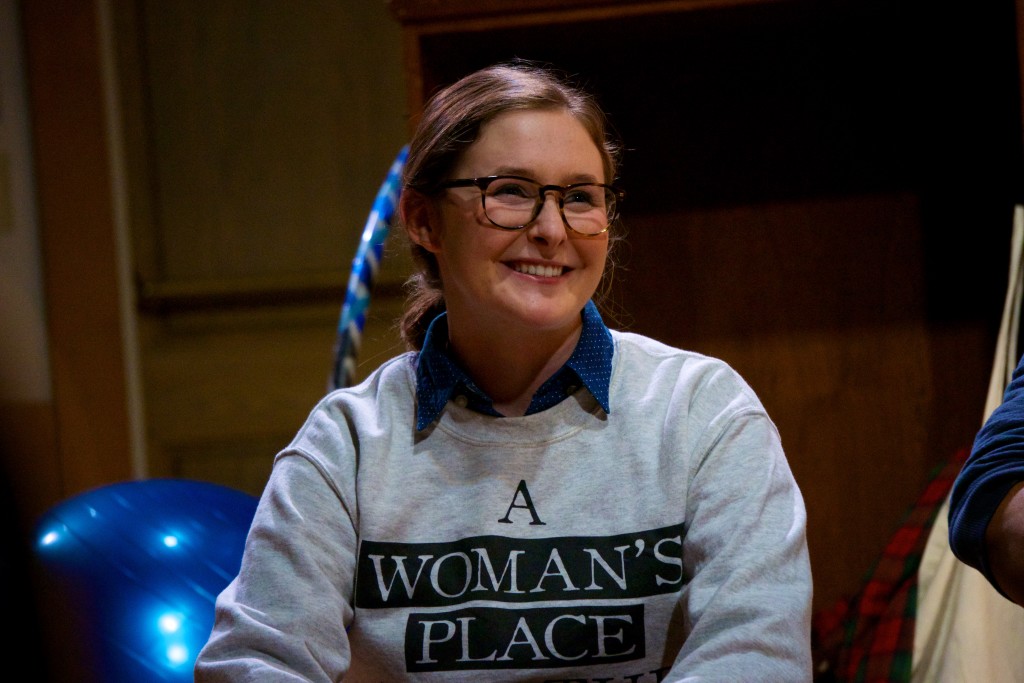
What does it mean to understand one another? What do we learn about ourselves in this process? And what happens when these understandings do not, in fact, align?
These questions are raised in Stanford Theater Laboratory’s production of Circle Mirror Transformation by Annie Baker: a five-person play directed by Shelby Mynhier (‘17), produced by Megan Calfas (‘16), and stage-managed by Alaina Brown (‘18). Located in the Elliot Program Center, the stage remained mostly simple and bare. The minimal set was fitting, considering this play is about the kind of space that grows from nothing and develops when five strangers cross paths.
In an hour and a half, the audience observed these five strangers discover intimate truths about one another through theater exercises in the setting of an adult acting class. These exercises require mutual understanding, patience, and awkwardness, including the courage to tell someone else’s story through one’s limited perception, and in return, to vulnerably and critically look at your own story.

To unfold such complex relations and truths is a hard task to tackle, but the talented, forceful, cast of five do so expertly and endearingly. Every movement in space and each hesitation in time was well-calculated and utilized. Notable moments include Lauren’s (Abby Brooke, ‘17) endearing, stutter-filled speech, which relays her limited conception of classmate Schultz (Victor Ragsdale, ‘19) and adds depth to her character’s comedic immaturity. The audience witnesses Schultz’s dynamism when he later transforms his timbre and tone from hesitant role-playing to a passionate plea in addressing former lover Theresa (Malaika Murphy-Sierra, ‘17). Murphy-Sierra’s portrayal of Theresa matches Ragsdale’s in her level of intentionality and display of vulnerability, gracefully undercutting her lines with meaningful allusions to Theresa’s insecurities.
Perhaps most heart-wrenching is the elegantly illustrated breakdown of Jamie and Marty’s relationship (Grace Wallis, ‘20 and Tara McCullough, M.A. ‘17). McCullough’s portrayal of a strong, lovable, and wholesome teacher does not collide with, but rather complements, her revealed sensitivity and pained vulnerability. Wallis’s depiction of Jamie, a character with a complex marital past, betrays but also begs for the audience’s empathy through her unveiled emotional infidelity.
Circle Mirror Transformation is introspective and serious, yet funny and delightful. But with these seemingly paradoxical qualities, the story did not seem convoluted, nor did the audience leave confused. Rather, Mynhier’s direction and this cast’s portrayal allowed for the audience to leave charmed and moved, and with a deeper appreciation for the complexities and multifacetedness of life and our relationships.
